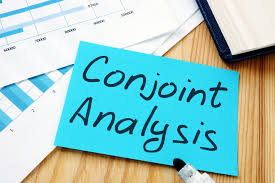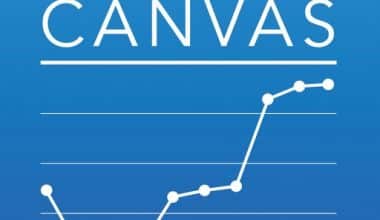In a job interview, you’re likely to be asked behavioral interview questions that investigate the manner you handled a workplace situation in the past and indicate how you might handle a similar scenario in the future. Behavioral interview questions are non-technical, focused on you, and 100% something you can prep for in advance. To help you, here is your ultimate go-to guide for answers to common behavioral interview questions for managers.
Overview
A behavioral interview is a known interview technique employers use to assess job candidates based on their past behavior. Thus, a behavioral interview focuses on a candidate’s past experiences to predict what type of employee they will be. Behavioral interview questions focus on what you have done, not what you would do. During a behavioral interview, the interviewer will be asking a series of questions relating to past experiences that are relevant to the job you are applying for.
How do I Prepare for a Behavioral Interview?
What’s the best way to prepare? It’s important to remember that you will not know what type of interview will take place until you are sitting in the interview room. But during the interview, if you are not sure how to answer the question, ask for clarification. Then use the STAR technique, being sure to include these points in your answer:
- A specific situation
- The tasks you need to do
- The action you took
- The results, i.e., what happened
Additionally, It’s important to keep in mind that there are no right or wrong answers. The interviewer simply tries to understand how you behaved in a given situation.
Behavioral Interview Question
Behavioral interview questions are questions or statements that ask job candidates to share examples of specific situations they’ve been in. Usually, interviewers want to know about an experience where you had to use certain skills—soft skills especially—or had to navigate certain types of scenarios. (Read: It’s the “Tell me about a time when…” genre of questions.)
Examples of Behavioral Interview Questions
These are several examples of questions in need of answers you will be asked in your next behavioral interview. So, take some time to prepare sample answers for each to practice and plan to be prepared for future interviews.
- Give me an example of a difficult problem you solved. How did you solve this problem?
- Tell me about a mistake that you’ve made. How did you handle it?
- Can you tell me about a challenging situation you overcame at work?
- Tell me about a time you learned a new skill. How did you approach it and how to did you apply your new learnings?
- Tell me about a time when you overcame a conflict at work.
- Explain a situation in which you would have handled things differently.
- Tell me about a time you handled a stressful situation when you were under a lot of pressure.
- Can you tell me about a time you set and achieved a certain goal?
- What is your proudest professional accomplishment and why?
Behavioral Interview Questions & Answers
Answers to behavioral interview questions are questions based on how you acted in a specific situation. They’re meant to gauge how you react to stress, what’s your skill level, and how you conduct yourself in a professional environment. They also allow the interviewer to get a much better understanding of you as a candidate like your skills and qualities, such as problem-solving, customer service, critical thinking, and communication. You can structure your answers to these questions using the STAR technique.
Behavioral Interview Questions & Answers: Examples
Exploring answers to a few common behavioral questions can help you assess the skills and qualities they’re designed to test, allowing you to increase your confidence level when answering them yourself. Review the following sample answers to behavioral interview questions will help you learn how to best craft your own answers,
Question 1. Give me an example of a time you had a conflict with a team member. How did you handle it?
Sample Answer: “At Businessyield Consult, my team was responsible for completing a project with a short deadline. But I decided it would be best to assign individual tasks to each team member, but one person disagreed and thought it would be better to meet to work on it together for a few days each week. I scheduled a lunch meeting with this team member to understand his idea and why he disagreed. After this meeting, we agreed by completing the smaller tasks individually and working on the larger ones as a group. In the end, the team was able to complete the task before the deadline. I also got a better understanding of my team members and their work preferences and learned that compromise can sometimes be the best way to resolve a conflict quickly.”
Question 2. Tell me about how you worked effectively under pressure.
Sample Answer: ‘I had been working on a key project that was scheduled for delivery to the client in 30 days. My supervisor came to me and said that we needed to speed it up and be ready in 25 days while keeping our other projects on time. I made it into a challenge for my staff, and we effectively added just a few hours to each of our schedules and got the job done in 23 days by sharing the workload. Of course, I had a great group of people to work with, but I think that my effective dispersing of tasks was a major component that contributed to the success of the project.”
Question 3. How do you approach goal-setting?
Sample Answer: “I believe goal-setting is crucial, this is because it has helped me focus my efforts based on organizational objectives. My preferred approach is to review the company’s priorities and how they relate to my position. Then, I create well-defined, actionable targets using the SMART goals process. That way, I have clear objectives that are measurable and motivating.
“However, I also go the extra mile, breaking down larger goals into micro-goals. That way, I can see every step between myself and the objective, creating a roadmap that guides me toward success.”
Question 4. Describe an occasion when you had to manage your time to complete a task. How did you do it?
Sample Answer: “Broad Idea Magazine released a special edition every quarter, and I was on the writing team last year. My editor needed three 3,000-word stories from me for the quarter’s upcoming special edition in January. Due to various production delays, I had only two weeks to write them, so I scheduled as much time as possible to research, write and edit each story. I set routine reminders for myself and carefully planned out each day before the deadline. By managing my time, I was able to complete the stories three days ahead of schedule.”
Common Behavioral Interview Questions
You’re interviewing for a business analyst position, chances are you have been asked to answer these common behavioral interview questions. These types of questions are designed to help employers determine whether a candidate has the right skills and experience for the job. Behavioral questions are designed to uncover how a candidate would react to different situations and how they handle different types of challenges.
Common Behavioral Interview Questions: Examples
As much as there are no ideas as to exactly which behavioral questions you will get, this will give you an idea of the types of questions you might be asked. As you read through, think of stories you can share in response to each subset of questions—they can often be tweaked on the spot to answer any variation an interviewer might throw at you.
#1. Teamwork Questions
Almost any job requires you to work with others, so be prepared to talk about your experiences as part of a team. You’ll want a story that shows your ability to work with others under challenging circumstances. For instance,
- Tell me about a time when you had to work closely with someone whose personality was very different from yours.
- Give me an example of when you faced a conflict with a coworker. How did you handle that?
- Describe a time when you had to step up and demonstrate leadership skills.
#2. Customer Service Questions
If you’d be working with clients, customers, or other external stakeholders in this role, definitely be ready for one or more of these. Be prepared with at least one story about a time you successfully represented your company or team and delivered exceptional customer service. For example,
- Describe a time when it was especially important to make a good impression on a client. How did you go about doing so?
- Give me an example of a time when you didn’t meet a client’s expectations. What happened, and how did you attempt to rectify the situation?
- Tell me about a time when you made sure a customer was pleased with your service.
#3. Adaptability Questions
Times of turmoil are finally good for something! Think of a recent work crisis you successfully navigated. Even if the outcome didn’t ideal, find a lesson or silver lining you took from the situation. Like,
- Tell me about when you were under a lot of pressure at work or school. What was going on, and how did you get through it?
- Describe a time when your team or company was undergoing some change. How did that impact you, and how did you adapt?
- Tell me about settling into your last job. What did you do to learn the ropes?
#4. Time Management Questions
When an interviewer asks about time management, get ready to talk about a specific instance when you had a few things in the air, prioritized, scheduled, organized, and completed everything—preferably before the deadline.
- Give me an example of a time you managed numerous responsibilities. How did you handle that?
- Describe a long-term project that you kept on track. How did you keep everything moving?
- Tell me about a time your responsibilities got a little overwhelming. What did you do?
#5. Motivation and Values Questions
A lot of seemingly common behavioral interview questions are actually attempts to learn more about what motivates you. Your response would ideally address values and motivations directly even if the question didn’t explicitly ask about them.
- Tell me about your proudest professional accomplishment.
- Describe a time when you saw a problem and took the initiative to correct it.
- Tell me about a time when you worked under either extremely close supervision or extremely loose supervision. How did you handle that?
Behavioral Interview Questions for Managers
Behavioral interview questions for managers can help you quickly assess leadership traits, skills, and knowledge in management candidates. Typical behavioral interview questions for managers require candidates to share examples of specific situations they’ve been in and where they had to use particular skills. You can anticipate these situational interview questions because the Society for human resource management believes they are the “most effective type of interviewing technique in nearly any type of organization.”
Behavioral Interview Questions for Managers: Examples
Performance-based interviews focus on how you perform a task and the outcomes of your actions. When answering these questions, be specific and call on past achievements from your work history as examples. Let’s look at the common behavioral interview questions for managers,
- Describe a situation where you had to collaborate with someone who had a different working style
- How do you make new employees feel included?
- Tell me about a situation where you went above and beyond to improve your workplace
- Tell me about an important assignment or task that you delegated. How did you ensure that it would be completed successfully?
- What do you hope to accomplish in your first month here?
- Why do you think you’re a good fit for this job?
Why do we Do Behavioral Interviews?
Most employers ask behavioral questions because they’re considered the most effective way to get to know the person behind the resume. The idea is that past behavior is the best predictor of future behavior, and therefore future success.
What do you say in Tell me about yourself?
Your answer to the “tell me about yourself” question should describe your current situation, your past job experience, the reason you’re a good fit for the role, and how you align with the company values. Tell the interviewer about your current position and a recent big accomplishment or positive feedback you received.
References
- .indeed
- .thebalancemoney
- theinterviewguys.
- myperfectresume
Related Articles
- VIDEO INTERVIEW TIPS: What Are the Tips & Checklist to Do Well?
- TOP 50+ QUESTIONS TO ASK AN EMPLOYEE IN AN INTERVIEW IN 2023
- PROJECT MANAGEMENT INTERVIEW QUESTIONS: Top 17+ Project Manager Interview Questions 2023
- WHAT MOTIVATES YOU: How To Answer This Tricky Interview Question
- BUSINESS DEVELOPMENT MANAGER: Meaning, Salary, Duties & Interview Questions






